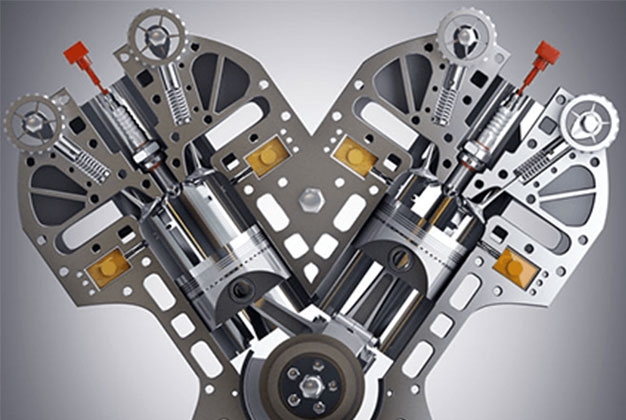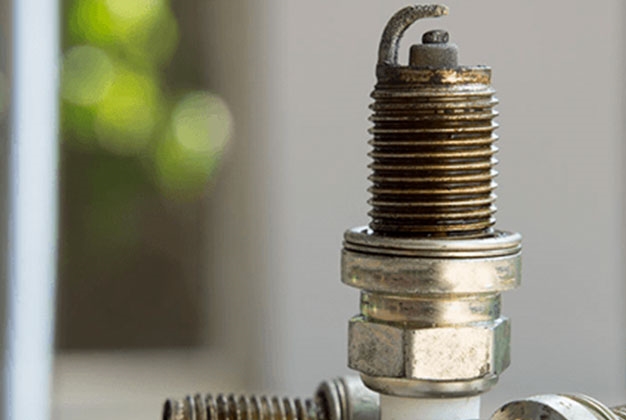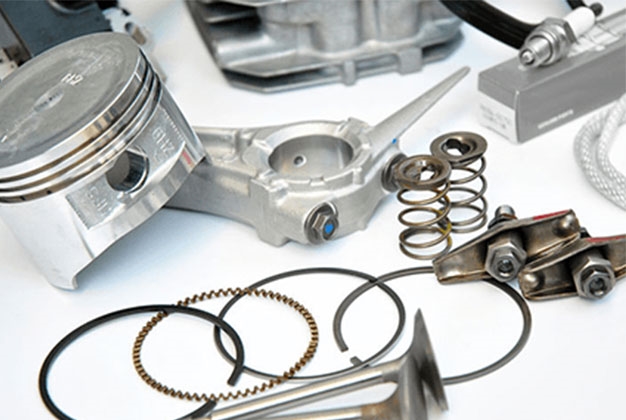
We often associate the characteristic pop and bang of an engine backfiring with old, rusty trucks -- but any engine can develop a backfire. Even the one under the hood of your car!
However, modern engineering has developed sophisticated engines with variable valve timings and computer-controlled spark timing, which all but eliminate backfiring in today's passenger cars. If your engine has been making loud noises that have you suspecting a backfire, check out the information below. We'll tell you five things that most commonly could lead to a backfire.
1. Lean Air/Fuel Mixture
Not having enough fuel added to the engine can also cause this problem! See, if there isn't enough fuel mixed with the air in the engine, the resulting mixture will actually combust more slowly -- meaning, when the exhaust valves open, there will still be unburned gasoline ready to get dumped into the exhaust. This problem could be due to clogged fuel injectors, a failing fuel pump or even a pressure leak elsewhere in the fuel system.
2. Rich Air/Fuel Mixture
Not only does your engine need to fire its spark and close its valves at the right time, it also needs to burn the right ratio of air to fuel. If too much fuel is added to the engine, it may not all burn up before the exhaust valves open -- letting unburned gasoline into the red-hot exhaust headers, where it can combust and lead to a backfire.
Too much fuel could be getting into your engine due to damaged and leaking fuel injectors or bad engine sensors. If the engine sensors are sending incorrect information to the computer, it may try to compensate by adding more fuel than necessary. To fix this, you may need fuel system cleaning service, some O2 sensors replaced or the mass airflow sensor replaced on your vehicle.

3. Bent Or Damaged Valve
As you can see, timing is critical to the safe, smooth operation of your engine. In interference engines, a type of engine where the valves open into the space that will soon be occupied by the rising piston, those valves must close before the piston arrives. If the engine timing system fails, this could allow the pistons to strike the open valves, bending or cracking them. This will prevent them from forming a good seal when closed, and could allow the engine to backfire. While uncommon, this kind of damage is very severe and you'll need a significant engine service to get your engine back in working order.
4. Incorrect Spark Firing Order
Nowadays, electronically controlled engines with coil-on-plug ignition systems basically eliminate this problem -- but on older models with spark distributors and spark plug wires, it's possible that your spark plugs could be hooked up to the distributor in the wrong order. If the spark fires in the wrong cylinder at the wrong time, this is sure to lead to a backfire, among other problems! This problem can also occur if the spark plug wires are crossed, say, after having your spark plugs replaced -- but, again, modern cars have engineered this problem away for the most part. Hooray for progress!

5. Bad Ignition Timing
Inside each cylinder of a modern combustion engine, you'll find at least one intake valve and at least one exhaust valve. The intake valve opens up to let air and/or fuel into the combustion cylinder where it can be ignited to generate power; the exhaust valve then opens to let the byproducts of that combustion exit the car via the exhaust.
These valves must open and close at the exact right time hundreds or even thousands of times per minute! If the timing is off even a little bit, this could lead to a backfire. If the intake valve doesn't completely close before ignition begins, fuel will be allowed to combust in the intake manifold -- resulting in a loud bang and reducing your engine's performance and smoothness. Or, if the exhaust valve opens too early, it can allow unspent fuel into the exhaust before it's all burned up. Instead, it'll combust in the exhaust where it makes a loud bang, does your engine no good and can even cause flames to shoot from the tailpipe.

Service Specials

Free Multi-Point Inspection
Let our Subaru Trained Service Technicians perform a thorough multi-point inspection. Includes: (Tires, Brakes, Belts, Hoses, & Suspension)

Oil Change
See Disclaimer for Taxes and Fees.

Front or Rear Brakes
See Disclaimer for Taxes and Fees.

4-Wheel Alignment Service
See Disclaimer for Taxes and Fees.


